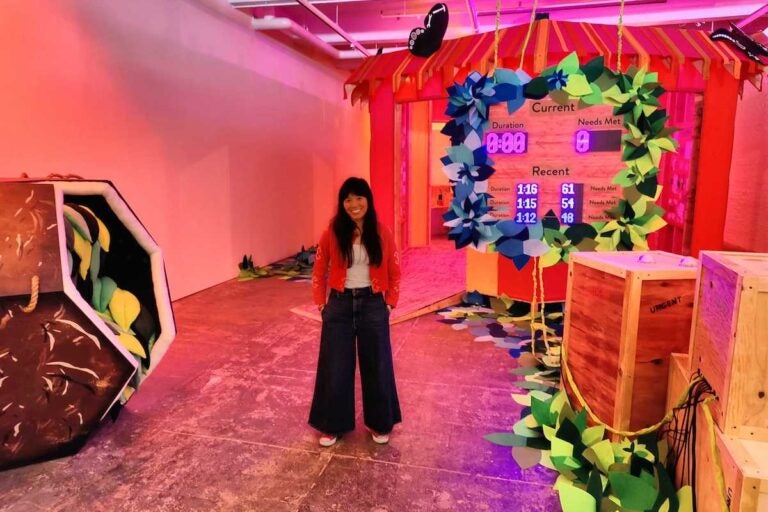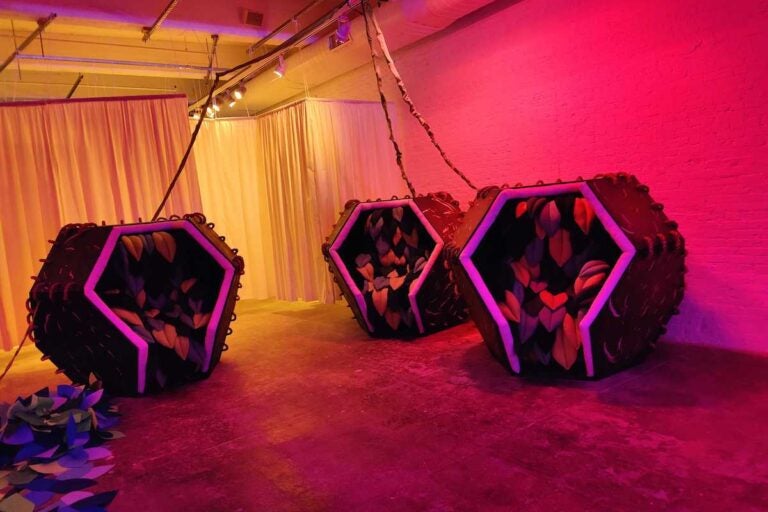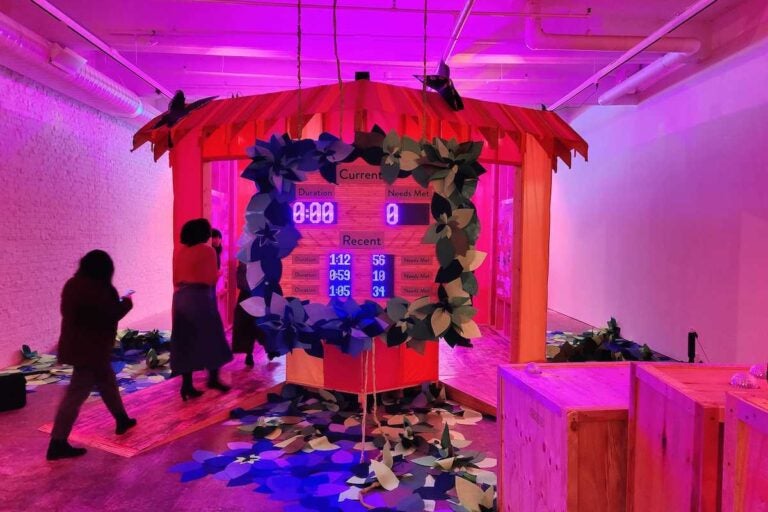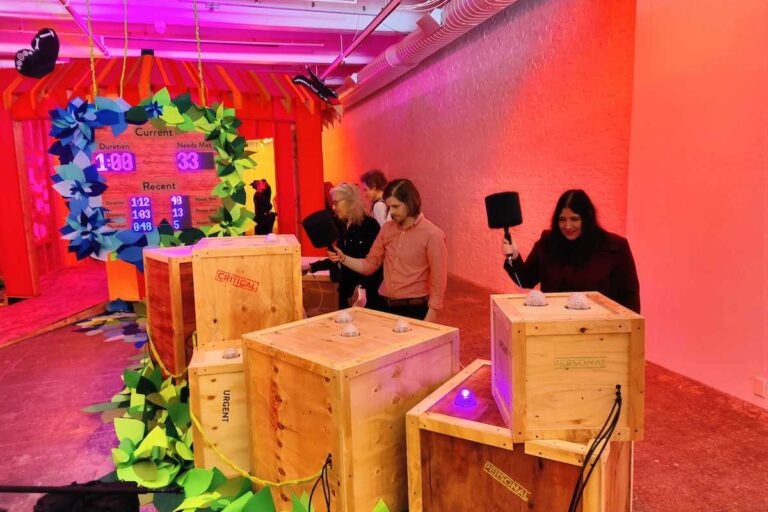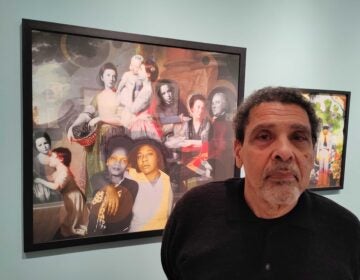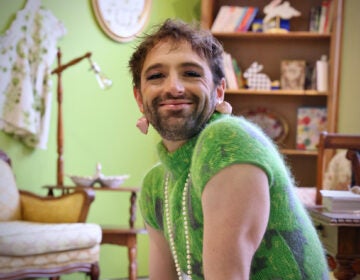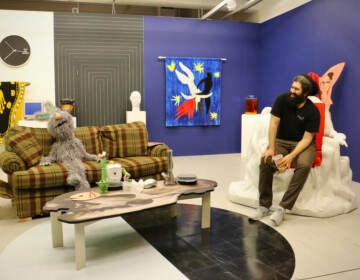Come in for a Filipino ‘Group Hug’ at the Fabric Workshop and Museum
Artist Risa Puno mines her Filipino family heritage to design an interactive game based on communal care.
Listen 1:05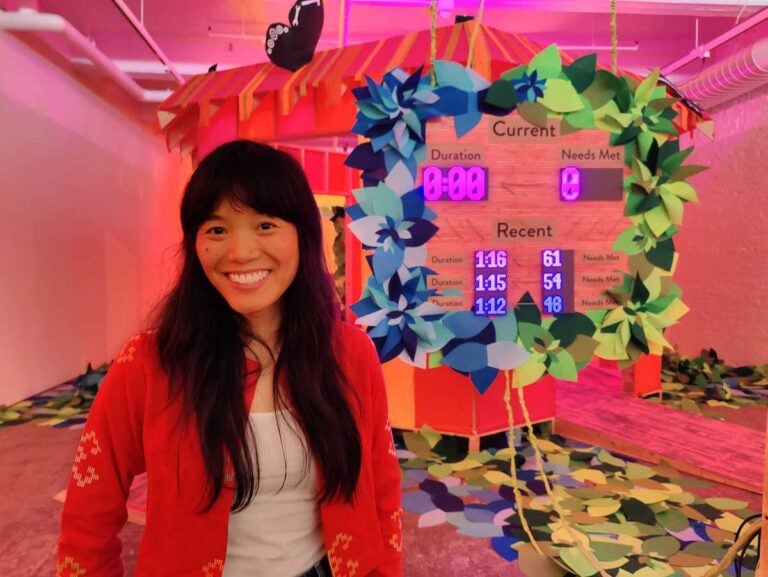
Artist Risa Puno on the floor of her Whac-a-Mole game, in her installation "Group Hug" at the Fabric Workshop and Museum. (Peter Crimmins/WHYY)
From Philly and the Pa. suburbs to South Jersey and Delaware, what would you like WHYY News to cover? Let us know!
Entering “Group Hug,” a new interactive installation at the Fabric Workshop and Museum, is like stepping inside a tequila sunrise.
The walk-through piece is blanketed in orange and pink lighting. New York-based artist Risa Puno said the comic-book aesthetic was inspired by the recent Barbie and Willy Wonka movies.
“I affectionately call it Halo-Halo. It’s a Filipino dessert,” she said. “It’s this ice cream dessert that’s got a mix of different things. Halo-Halo means ‘mix’ in Tagalog.”
Visitors exiting the elevator on the eighth floor of the Fabric Workshop are immediately confronted with a curtain that asks them to enter either from the left or the right: “Cared For” and “Care For,” respectively.
Don’t worry: Visitors will ultimately experience both before they exit again.
Once inside, the “Care” people are asked to play a version of Whac-A-Mole. Spheres randomly light up atop wooden shipping crates labeled “Urgent” and “Critical.” Visitors can hit them with a mallet as points add up on a digital scoreboard.
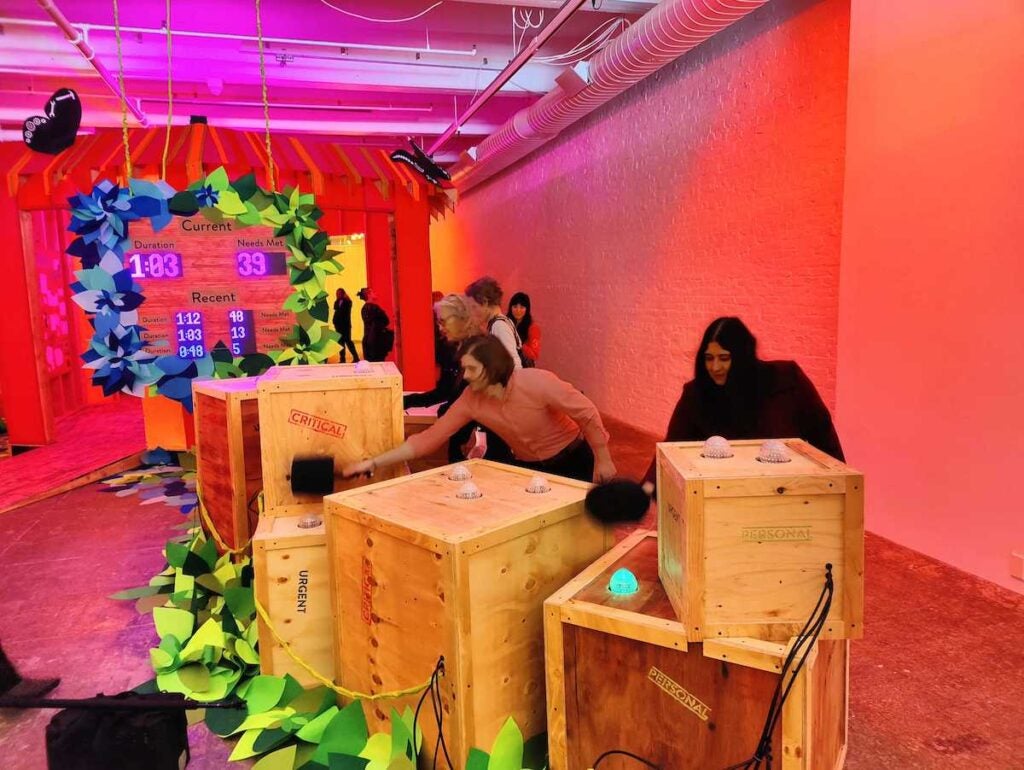
On the other side of the room the “Cared” people find large hexahedron pods — inspired by coconuts — filled with soft, plush leaves. Visitors are invited to sit inside the pods, which automatically recline back into the coconut and envelop them with soothing sounds. After a certain length of time the recliner returns upright and a voice asks the sitters to step out: “Know you have been cared for.”
Here is how the game works: Points earned by the Whac-a-Mole players are translated into time spent inside the coconuts. So the harder the “Care” players work, the better the “Cared” players are served.
Then, the roles are switched.
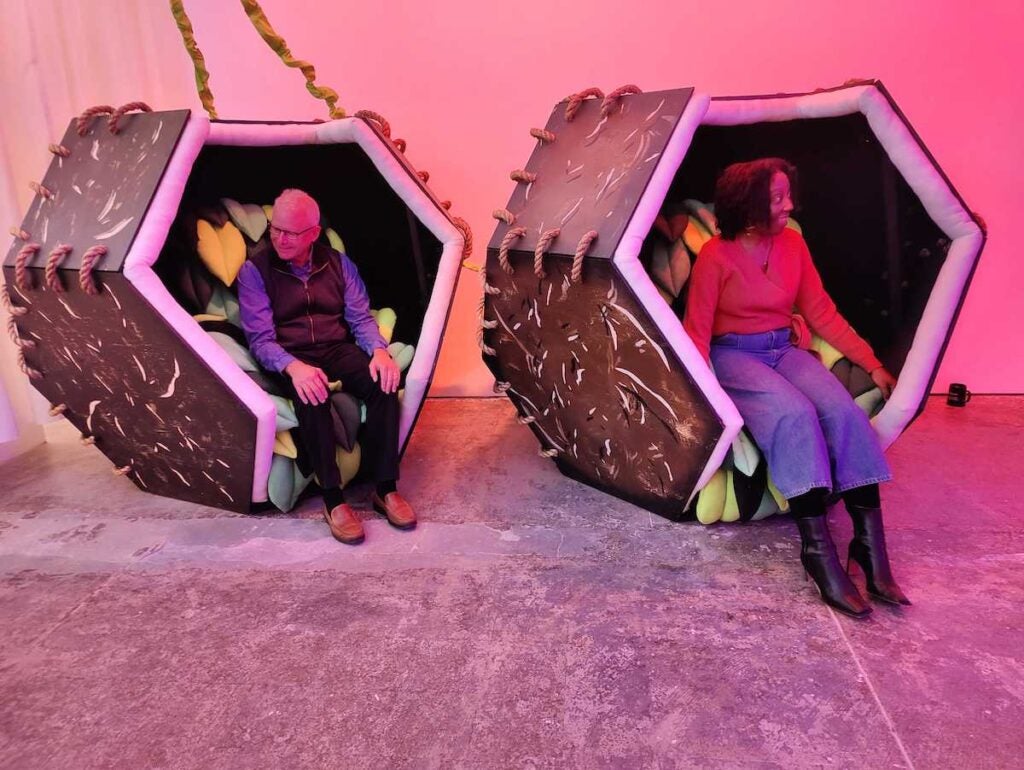
“Group Hug” has an arcade vibe and is meant to be fun. It’s also based on Puno’s personal life: Her father developed a debilitating medical condition late in life. His specific issue is never described, but Puno said it’s a chronic condition requiring constant care. It rewrote her family dynamic as the patriarch became the patient.
“I speak through the language of play, and for me Whac-a-Mole was the most appropriate game,” she said. “Whac-a-Mole is a game that has a lot of urgency and a lot of anxiety. That’s what the process of dealing with my dad’s health issues has been like…trying to just deal with whatever pops up.”
“Group Hug” is based on the Filipino culture of kapwa, a social concept of communal sharing and care. The centerpiece of the installation is a structure through which both “Care” and “Cared” must pass through — it’s where they switch roles — constructed as a traditional Filipino hut, or bahay kubo.
Traditionally, when a family needed to relocate their bahay kubo, the entire village would hoist the structure on their shoulders using horizontal poles and walk it to its new location. That action is the basis of the Filipino concept of bayanihan, or communal spirit.
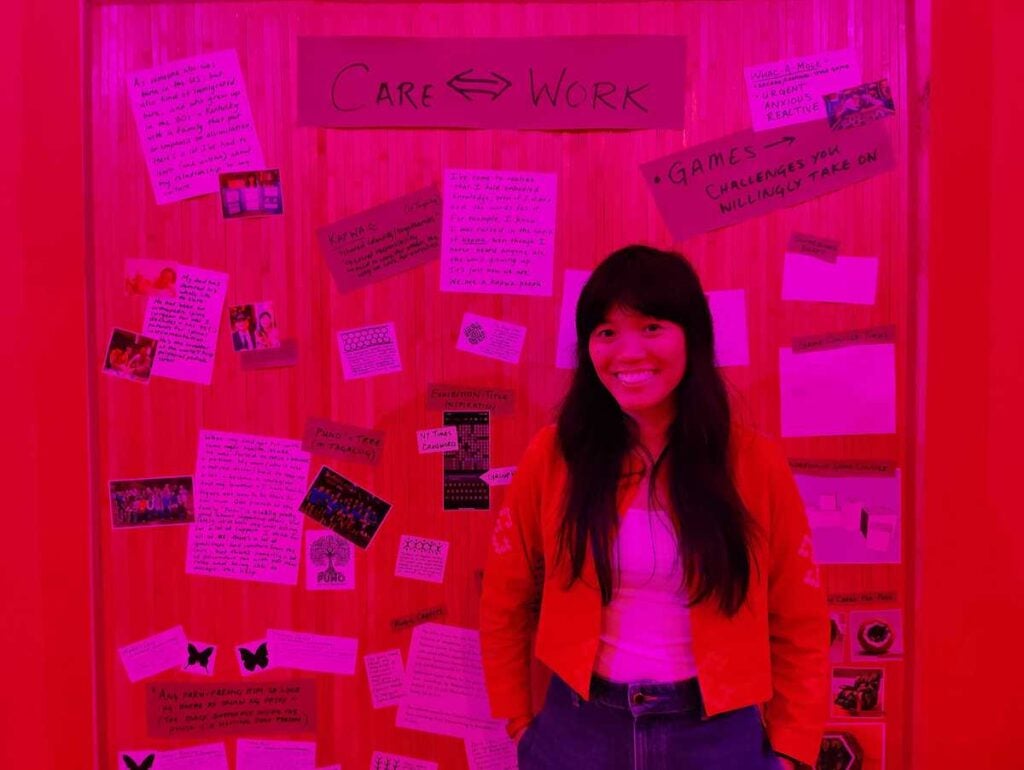
Outside the hut at the Fabric Workshop, Puno hung large decals of black butterflies, a traditional Filipino symbol of visitations by deceased ancestors. Inside are hand-written notes describing how she derived “Group Hug,” including working diagrams and process photos, and personal confessions about her family and her relationship to the Philippines.
Puno was born in Louisville, Kentucky, to immigrant Filipino parents, both doctors, who stressed assimilation into American culture.
“As someone who was born in the U.S., but also kind of immigrated here…there’s a lot I’ve had to learn (and unlearn) about my relationship to my culture,” she wrote.
As a syrupy sweet cocktail of gaming and family history, Puno’s installation attempts to viscerally evoke both the anxieties and rewards of restorative care.
“The nice thing is the stakes are low,” she said. “I wanted to give people those real emotions without having crushing, real-life consequences.”
“Group Hug” by Risa Puno will be on view at the Fabric Workshop and Museum until July 21.

Saturdays just got more interesting.
WHYY is your source for fact-based, in-depth journalism and information. As a nonprofit organization, we rely on financial support from readers like you. Please give today.



